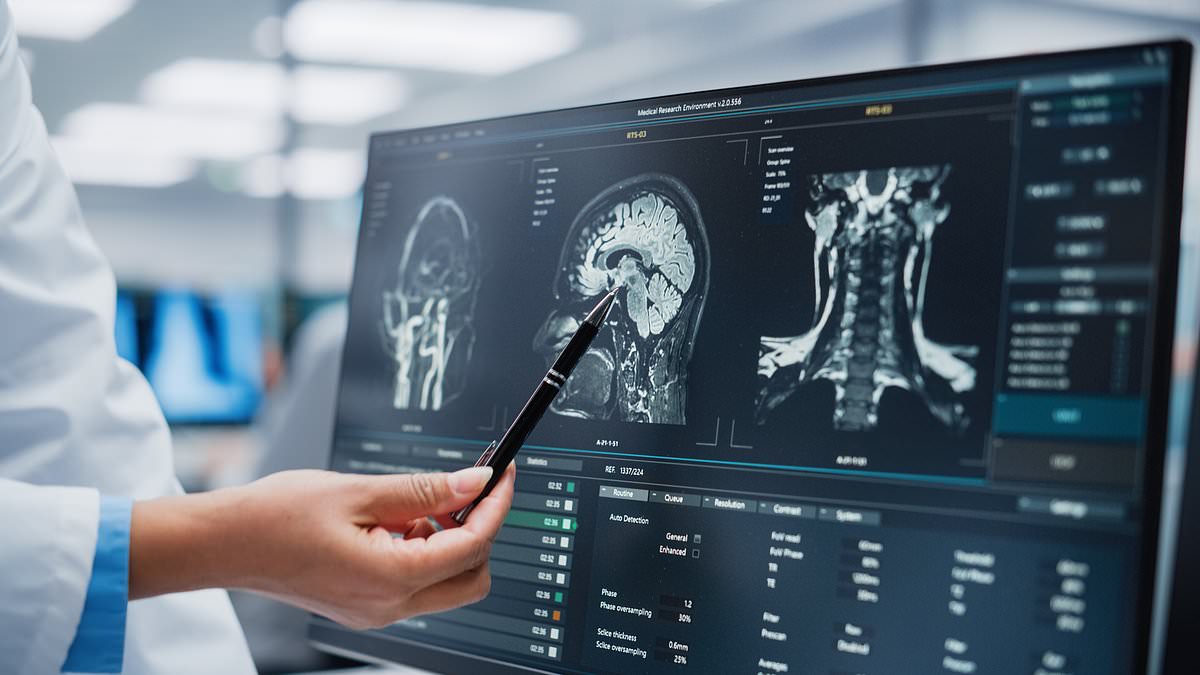People in England diagnosed with dementia has hit record levels, according to NHS data.
New NHS figures reveal that 487,432 people had a diagnosis of some form of the condition in June, with Alzheimer’s being the most common type.
This is up 12 per cent compared to January last year, when 431,845 cases of the condition were recorded.
The NHS said that the number of patients is just 65 per cent of the total number of people estimated to have dementia in England — around 750,000.
Around 345,000 of the patients diagnosed with dementia aged 65 or older were also suffering from one or more other serious conditions including heart disease, stroke, diabetes or high blood pressure.

New figures reveal that 487,432 people had a diagnosis of some form of the condition in June, with Alzheimer’s being the most common type
The statistics also show dementia can hit younger people too, with around 33,950 of those with the condition receiving their diagnosis before the age of 65.
There were 193,102 people who, although not diagnosed with dementia, were found to have mild cognitive impairment — considered a precursor to dementia.
The NHS said it wants to hit its target of diagnosing a third of the total number of people estimates suggest are living with dementia.
England has one of the highest dementia diagnosis rates in the world, with high-income countries typically in the range of 20 to 50 per cent.
NHS England are assessing care home residents to support identification of people who may have dementia.
A timely diagnosis is vital to ensure more people get the support and care they need to live with the condition.
The health service is calling on people to come forward and get checked if they have any common early signs or symptoms.
Dr Jeremy Isaacs, NHS England’s national clinical director for dementia, said: ‘Getting a diagnosis of dementia is the first step in supporting people, with a wide range of NHS services able to help.
‘NHS staff have worked hard to recover services with the number of people with a diagnosis rising significantly over the last year, and now at a record level, but there is more work to be done.
‘Thousands more individuals are being diagnosed each month and more medication reviews are being done within 12 months.
‘Common early symptoms of dementia include forgetting bits of information, saying the same thing repeatedly, struggling to follow a conversation or find the right word and being confused about time and place. Usually, these problems will be more obvious to the person’s family and friends than to the individual themselves.
‘If you have noticed that someone has symptoms, please encourage them to visit their GP for an assessment – the sooner someone is seen the quicker the NHS can help.’
Alzheimer’s Society policy manager Dr Alex Osborne welcomed the progress but stressed the importance of early diagnosis.
She said: ‘An early, accurate diagnosis is vital for unlocking care, support, and treatment.
‘We’re close to meeting the existing target of a 66.7 per cent diagnosis rate — so now we’d like to see bold, ambitious but achievable new targets set for the future to ensure everyone gets the diagnosis they need.’

But they can also be a sign of dementia — the memory-robbing condition plaguing nearly 1million Brits and seven million Americans

Around 900,000 Brits are currently thought to have the memory-robbing disorder. But University College London scientists estimate this will rise to 1.7million within two decades as people live longer. It marks a 40 per cent uptick on the previous forecast in 2017
Experts also say improved diagnosis is also critical for patients to access game changing new drugs that can slow the progress of Alzheimer’s in its early stages.
These drugs, called donanemab and lecanemab, can only be deployed if patients undergo very specific diagnostic tests but only a tiny of fraction of patients in Britain currently receive them.
As people live longer, the number of people being diagnosed with dementia is expected to increase.
The NHS estimates that by 2030 there will be 1 million people with Alzheimer’s, and by 2040 the Alzheimer’s Society estimates that 1.4 million people will have the condition.










